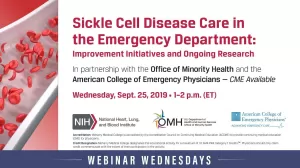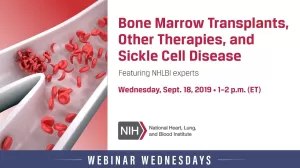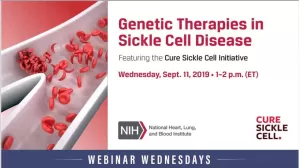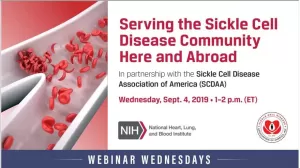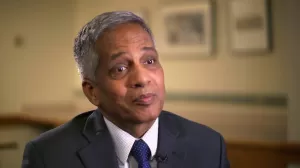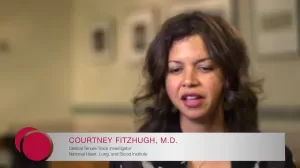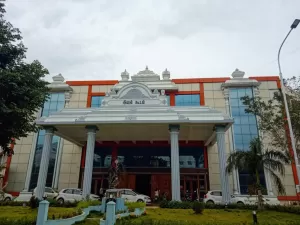
Mahatma Gandhi Medical College and Hospital, Sitapur, Jaipur
Mahatma Gandhi Hospital (MGH) was formally inaugurated on 2nd October, 2000. At present this multi - specialty teaching hospital has 1400 beds. MGH also provides adequate clinical teaching materials as envisaged by Medical Council of India, Dental Council of India, and Indian Nursing Council.
The world - class infrastructure with the state- of- art medical equipment and highly reputed and experienced medical consultants / doctors / paramedical staff of MGH provides clinical support to the faculty of medicine resulting into most efficient teaching in these institutions.
MGH has a fully developed central diagnostic laboratory in biochemistry, microbiology and pathology. A well-trained and senior faculty supervises this lab which is one of the biggest in the State. MGH provides well-developed, unique services in the field of Advanced Reproductive Techniques (ART), medical and surgical endoscopy and modern blood banking with component therapy. MGH has started its Regional Emergency and Trauma Center approved for Medico Legal Cases (MLC) along with well - equipped ambulance facilities meant to save lives of the victims of road accidents. The efficient and effective emergency department is well equipped with intensive care therapy, diagnostics, radio-diagnostic including ultrasonography and CT Scan, MRI, Hematology and fully equipped operation theaters manned by eminent professionals and experts round-the-clock. This is the first trauma centre in the state approved by the Govt. of Rajasthan to deal with medico-legal cases including road traffic accident and post mortem under the Dept. of Forensic Medicine of MGMCH.
MGH has recently been upgraded with a state-of-art Cardiac & Critical Care Centre. The services at Cardiac & Critical Care Centre are available for patients by experienced Cardiologists & Cardiothoracic surgeons round the clock along with latest equipments & ultra modern technology.
The Hospital has a modern Kidney Transplant & Urology Centre namely Mahatma Gandhi Kidney Transplant Center which has started its functioning under expert Kidney Transplant Surgeons and Nephrologists. This center gives quality medical services with ultra modern techniques at affordable cost for all kinds of kidney ailments. A full fledged Department of Oncology is launched with two linear accelerators for Radiotherapy services.
Vision
To be center of excellence for providing quality helthcare to every section of society and be a preferred Medical Institution for treatment.
Our Mission
To develop a worldclass teaching hospital with a noble aim to serve all the class of society at affordable prices without compromising on medical ethics and quality.
Dr. Vikas Chandra Swarankar is the Chairperson of Mahatma Gandhi University of Medical Sciences & Technology, Jaipur - a University of repute, established under the Rajasthan Legislative Assembly Act No. 22 of 2011 and is the first private medical University in the State. Prior to being the Chairperson, he was the Pro-Chairperson of MGUMST and Director at Jaipur Fertility Centre.
He is one of the few clinicians in the State to have double Post Graduate degrees of Master of Surgery (M.S.) in General Surgery and Master of Surgery (M.S.) in OBGYN. He was awarded a gold medal for securing the 1st position in University Post Graduate Examination. He graduated in medicine from Mahatma Gandhi Medical College & Hospital in 2009.
His area of clinical and academic interest is Reproductive Medicine and Advanced Reproductive Technology (ART), and he specializes in IVF / ISCI and Endoscopy. He has over 7 years of experience as a Fertility Specialist and Endoscopist. He is a trained Robotic General Surgeon. He has undergone extensive training, both in India and abroad, in Reproductive Medicine. He has had clinical exposure in few of the leading Hospitals of the world, namely, Massachusetts General Hospital, Boston (USA), Cleveland Clinic, Cleveland (USA), Kings College Hospital, London (UK), and National University Hospital, Singapore. He has published research papers and articles in various National and International Journals. He has participated in multiple national and international conferences as Guest Faculty / Speaker.
Apart from being a fertility specialist, Dr Vikas Swarankar is also an Administrator and Entrepreneur. He has over 10 years of experience in managing a large 1400-bedded university teaching hospital, Mahatma Gandhi Hospital. He has been an active witness to the growth story of this Tertiary Care Institute and is determined to take it to newer heights and making it a Centre of excellence in medical sciences in India.
DM - Cardiac-Anaesthesia
D. M. in Cardiac Anesthesia is a doctoral program. DM Cardiac Anaesthesia course is designed to train candidates in the principles and practice of Cardiac anesthesia and intensive care and also to function as faculty/consultant in Cardiac anesthesia along with perioperative, intensive care and pain management.
Aim and Objectives of the Course
The aim of the course is to impart thorough and comprehensive training to the candidate in the various aspects of this specialty to enable him/her
- To function as a member of faculty/consultant in the specialty
- To carry out and to help in conducting applied research in the field of cardiac anesthesia
- To plan and to set-up independent cardiac anaesthesia unit catering to cardiothoracic vascular surgery and intensive cardiac care and Cath Lab.
Teaching Methods
During the period of training candidates follow in-service rotation residency programme. He/She works as senior resident and is given gradually increasing responsibility of independently managing simple cardiac operations, decision making in intensive care management, Cath Lab investigative procedures and various intensive monitoring. The day-to-day work of the trainees will be supervised by the consultant of the department of cardiac anesthesiology. The posting is so designed that the trainee gets posted in various areas of the department, including operation theatre, postoperative ICU, Intensive coronary care unit, Cath. Lab, echo room, and cardiothoracic surgery department. Purpose of rotation in Cardiac Surgery is to understand overall patient management and to develop and improve perspective on Cardiac Anaesthesia Services. He or she will be learning invasive cardiovascular diagnostic and therapeutic procedures done in Cath Lab and emergency services from viewpoint of Cardiac Anaesthesia. The Trainee will participate in regular Joint preoperative Meetings and discussions with Cardiac Surgeons, Cardiologists, Pediatricians, Physiotherapists, Nurses and Physicians for better patient management. Besides this a programme for invasive monitoring demonstrations, seminars, workshops, journal club will also be organized. In addition, soft skills: working in team, communication skills, leadership skills, ethics, techniques of documentation and knowledge of medico legal aspects will also be required to develop.
DM - Cardiology
It seems like you're using "DM" in the context of Cardiology. If you mean "DM" as a specific topic or abbreviation, it would be helpful to have more information or context to provide a more accurate response. "DM" could stand for various things depending on the context, such as Direct Message or Diabetes Mellitus.
If you're referring to "DM" in the context of Cardiology, and it's related to a specific topic or question, please provide more details or clarify your request so I can assist you appropriately. Whether you're interested in a particular aspect of cardiology, a specific condition, diagnostic procedures, or treatment options, additional information will help me provide more targeted information.
DM - Nephrology
In a medical context, "DM" can refer to "Direct Message" in online communication. If you're asking about "Nephrology" in the context of healthcare, I can provide information on that.
Nephrology is a medical specialty that focuses on the study and treatment of kidney-related conditions. Here are key points related to nephrology:
Nephrologists:
- Nephrologists are physicians specialized in nephrology. They diagnose and treat a wide range of kidney disorders and work closely with other healthcare professionals to manage these conditions.
Kidney Function:
- The kidneys play a crucial role in maintaining the body's overall health. They filter blood to remove waste products, regulate electrolytes, and control fluid balance.
Kidney Diseases and Disorders:
- Nephrologists diagnose and treat various kidney-related conditions, including:
- Chronic Kidney Disease (CKD)
- Acute Kidney Injury (AKI)
- Glomerulonephritis
- Kidney Stones
- Polycystic Kidney Disease (PKD)
- Hypertension (High Blood Pressure) affecting the kidneys
- Nephrologists diagnose and treat various kidney-related conditions, including:
Dialysis:
- Nephrologists are involved in the management of patients requiring dialysis. Dialysis is a medical procedure that artificially removes waste products and excess fluids from the blood when the kidneys are no longer able to perform these functions adequately.
Kidney Transplantation:
- Nephrologists often work with transplant surgeons in the evaluation and care of patients undergoing kidney transplantation.
Hypertension Management:
- Nephrologists play a key role in managing high blood pressure, particularly when it is related to kidney disease.
Electrolyte Disorders:
- Nephrologists address imbalances in electrolytes (such as sodium, potassium, and calcium) that can affect kidney function.
Collaboration with Other Specialists:
- Nephrologists collaborate with other healthcare professionals, including primary care physicians, urologists, endocrinologists, and nutritionists, to provide comprehensive care for patients.
Preventive Care:
- Nephrologists emphasize preventive measures to maintain kidney health, especially in individuals with risk factors such as diabetes, hypertension, and a family history of kidney disease.
Research and Advancements:
- Nephrologists contribute to ongoing research in the field, leading to advancements in the understanding and treatment of kidney disorders.
If you have specific questions about nephrology or if there's a particular aspect you'd like more information on, feel free to let me know.
DM - Neurology
Sure, let's talk about Neurology. Neurology is a medical specialty that focuses on the diagnosis and treatment of disorders affecting the nervous system. This includes the brain, spinal cord, peripheral nerves, and muscles. Neurologists are medical doctors who specialize in neurology. Here are some key aspects of neurology:
Neurological Disorders:
- Neurologists diagnose and treat a wide range of neurological disorders, including but not limited to:
- Stroke
- Epilepsy
- Multiple Sclerosis (MS)
- Parkinson's disease
- Alzheimer's disease
- Migraines and other headache disorders
- Neuropathies
- Movement disorders
- Neurogenetic disorders
- Neurologists diagnose and treat a wide range of neurological disorders, including but not limited to:
Neurological Examination:
- Neurologists conduct thorough neurological examinations to assess a patient's sensory function, motor skills, coordination, reflexes, and cognitive abilities.
Diagnostic Tools:
- Neuroimaging techniques such as MRI and CT scans help in visualizing the structure of the brain and spinal cord.
- Electrophysiological studies, like EEG (Electroencephalogram) and EMG (Electromyogram), assess electrical activity in the nervous system.
Stroke Management:
- Neurologists play a critical role in the management of stroke, both in acute care and long-term prevention.
Epilepsy Treatment:
- Managing epilepsy involves medication management, lifestyle adjustments, and, in some cases, surgical interventions.
Movement Disorders:
- Neurologists specialize in the diagnosis and treatment of movement disorders such as Parkinson's disease, essential tremor, and dystonia.
Headache and Pain Management:
- Addressing various types of headaches, including migraines, tension-type headaches, and cluster headaches, is a common part of neurology practice.
Memory and Cognitive Disorders:
- Neurologists evaluate and manage conditions affecting memory and cognitive function, including Alzheimer's disease and other forms of dementia.
Neuromuscular Disorders:
- Disorders affecting the muscles and peripheral nerves fall under the expertise of neurologists.
Multiple Sclerosis (MS) Management:
- Neurologists are involved in the diagnosis and long-term management of MS, an autoimmune disorder affecting the central nervous system.
Collaboration with Other Specialties:
- Neurologists often collaborate with other medical specialties, including neurosurgery, psychiatry, rheumatology, and rehabilitation medicine.
Research and Advancements:
- Neurologists contribute to ongoing research to better understand neurological conditions and develop new treatments.
Telemedicine:
- With advancements in technology, neurologists may use telemedicine for remote consultations, especially for follow-up appointments or managing chronic conditions.
If you have specific questions about neurology or if there's a particular aspect you'd like more information on, feel free to ask.
DM - Oncology
Certainly, let's discuss Oncology. Oncology is the medical specialty focused on the prevention, diagnosis, and treatment of cancer. Oncologists are physicians who specialize in oncology and work in collaboration with other healthcare professionals to provide comprehensive care for cancer patients. Here are key aspects of Oncology:
Prevention:
- Oncologists emphasize preventive measures to reduce the risk of developing cancer. This may include lifestyle modifications, vaccination (e.g., HPV vaccine for cervical cancer prevention), and screening programs.
Cancer Diagnosis:
- Oncologists use various diagnostic tools, including imaging studies, biopsies, and laboratory tests, to accurately diagnose and stage cancer.
Tumor Boards:
- Multidisciplinary tumor boards bring together oncologists, surgeons, radiologists, pathologists, and other specialists to discuss and collaboratively plan the best treatment approach for individual cancer cases.
Treatment Planning:
- Oncologists develop personalized treatment plans based on the type and stage of cancer, as well as the patient's overall health. Treatment modalities may include surgery, chemotherapy, radiation therapy, immunotherapy, hormone therapy, targeted therapy, or a combination of these.
Surgical Oncology:
- Surgical oncologists specialize in the surgical management of cancer. They perform biopsies, tumor removals, and other surgical procedures to treat or diagnose cancer.
Medical Oncology:
- Medical oncologists focus on the use of systemic therapies such as chemotherapy, immunotherapy, targeted therapy, and hormone therapy to treat cancer.
Radiation Oncology:
- Radiation oncologists use radiation therapy to target and destroy cancer cells. This may involve external beam radiation or internal radiation (brachytherapy).
Hematology-Oncology:
- Hematologist-oncologists specialize in the treatment of blood cancers, such as leukemia, lymphoma, and myeloma, as well as other hematological disorders.
Palliative Care:
- Palliative care specialists work in conjunction with oncologists to provide supportive care and improve the quality of life for patients with advanced or terminal cancer.
Clinical Trials:
- Oncologists may recommend participation in clinical trials to explore new and innovative treatments, contributing to advancements in cancer care.
Genomic Medicine:
- Advances in genomics allow oncologists to analyze the genetic makeup of tumors, guiding treatment decisions and identifying targeted therapies.
Cancer Survivorship:
- Oncologists provide ongoing care and support for cancer survivors, addressing long-term effects of treatment and monitoring for potential recurrence.
End-of-Life Care:
- Oncologists, along with palliative care specialists, assist patients and their families in making decisions about end-of-life care and providing compassionate support.
Patient Education:
- Oncologists play a crucial role in educating patients about their diagnosis, treatment options, and potential side effects, empowering them to make informed decisions about their care.
Oncology is a rapidly evolving field with ongoing research and advancements aimed at improving outcomes for cancer patients. If you have specific questions about oncology or if there's a particular aspect you'd like more information on, feel free to ask.
M.B.B.S.

Bachelor of Medicine, Bachelor of Surgery (Latin: Medicinae Baccalaureus, Baccalaureus Chirurgiae; abbreviated in many ways, most commonly MBBS, but also MB ChB, BMBS, MB BCh, MB BChir), is the primary medical degree awarded by medical schools in countries that follow the tradition of the United Kingdom. The historical degree nomenclature states that they are two separate undergraduate degrees. In practice, however, they are usually combined as one and conferred together, and may also be awarded at graduate-level medical schools.
Bachelor of Medicine and Bachelor of Surgery (MBBS), is a professional degree in medical science. A person holding the MBBS degree becomes a certified medical practitioner. The duration of MBBS course is five years and six months including one year of rotational internship at hospitals, health centres, and health camps organised by non-profit organisations (NGOs). MBBS course syllabus includes studies on anatomy, pharmacology, pathology as well as community health & medicine, paediatrics, and surgery. The syllabus, prescribed in such a way that MBBS degree holders can choose a specialisation for further majoring and practising medicine. The career specialisations for MBBS students are Nephrology, Cardiology, Gynecology, Anesthesiology, Organ Transplant, Endocrine, and General Surgery, etc.
MD - Anaesthesiology
The purpose of PG education is to create specialists who would provide high quality health care and advance the cause of science through research & training. A post graduate specialist having undergone the required training in anesthesiology should be able to recognize the health needs of the community. He or she should be competent to handle effectively medical problems and should be aware of the recent advances pertaining to his/her specialty. She/he should be highly competent anesthesiologist with broad range of skills that will enable him/her to practice anesthesiology independently. The PG student should also acquire the basic skills in teaching of medical/para-medical students. She/he is also expected to know the principles of research methodology and modes of consulting library. She/he should attend conferences, workshops and CMEs regularly to upgrade his/her knowledge. The purpose of this document is to provide teachers and learners illustrative guidelines to achieve defined outcomes through learning and assessment. This document was prepared by various subject-content specialists. The Reconciliation Board of the Academic Committee has attempted to render uniformity without compromise to purpose and content of the document. Compromise in purity of syntax has been made in order to preserve the purpose and content. This has necessitated retention of “domains of learning” under the heading “competencies”
MD - Psychiatry
M. D. in Psychiatry is a Clinical Speciality course.
Doctor of Medicine in Psychiatry explores the major psychiatric syndromes like psychotic, mood and anxiety disorders, psychological effects of physical diseases, the doctor-patient relationship, human development, patient interviewing, and ethical issues in medicine. It is a three-year postgraduation course and can be pursued by any MBBS holders from a University recognized by Medical council of India. Most psychiatrists practice general psychiatry. Sub-specialization in Child and Adolescent Psychiatry, Addiction Medicine, and Geriatric psychiatry can be conducted after M. D. in Psychiatry.
- Log in to post comments
- 121 views



